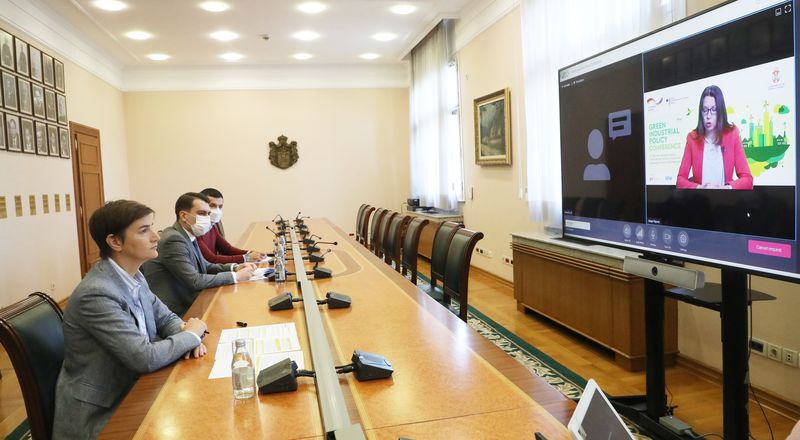Prime Minister Ana Brnabic stated today that Serbia sincerely wants to get harmonised with the standards and the Green Agenda of the European Union and to achieve inclusion in the Green Deal, which is perhaps the most important for the future quality of life in our country.
- Serbia
Get to know Serbia
- Citizens
Culture and science
Health services
Pension and disability insurance
- Business
Employment
Economy
- Media
- Government
- Contact
Keep in touch
Keepin touch
Whether you have a question, comment, suggestion or any problem in the purview of the government, send us your message and we will try to respond as soon as possible. If your problem is not in our purview, we will forward your message to the relevant institution.
Harmonisation with EU standards, Green Agenda
At the online conference "Green Industrial Policy" organised by the German Embassy in Serbia and the German-Serbian Initiative for Sustainable Growth and Employment, Brnabic pointed out that the government's priorities in that area are improvement and protection of air quality, wastewater treatment and solid waste management.
It is important that the government, in partnership with EU institutions and other partners, tries to do something to make the results as fast as possible, said the Prime Minister and announced that the construction of wastewater treatment plants will be launched in 28 local governments in Serbia by the end of this year.
She added that Serbia is planning with its European partners projects of air quality protection in areas that use fuel oil and coal, and stated that negotiations on projects for Kragujevac, Kosjeric and Valjevo are underway.
These are extremely important and ambitious projects. I would ask the German government and German companies to join the ambitious project because there is a huge space for public-private partnerships, so that we can launch as many projects in the public interest as possible, Brnabic said and pointed out that she is looking forward to future cooperation.
She also pointed to the dynamic legislative activity on the initiative of the government of Serbia, which is taking place in this area, and has resulted in the adoption of several laws.
The topic of environmental protection and energy and green transition is one of the three key priorities of the Serbian government, the Prime Minister pointed out and stated that the estimated investment framework in the field of water management alone, in order for Serbia to achieve EU standards, is €6 billion.
Serbia now has the financial capacity to invest in such projects. The time has come to address this priority. We have huge technical, professional and financial support from the EU for that job, she said.
German Ambassador to Serbia Thomas Schieb pointed out that the EU's decision to be carbon neutral by 2050 is important for Serbia as an EU candidate.
This reduction is carried out through the principles of the circular economy and with efforts to protect the environment. Modernisation of the economy is necessary, there may be job losses, but with planning it is possible to overcome this problem. Serbia is innovative and should be in a good position, Schieb stated.
He underlined that Serbia needs a kind of master plan, to know what green policy means and how to implement it, and added that green industrial policy for Serbia means joining the principles of the circular economy and continuing the digitalisation process.
-
 Belgrade, 19 July 2025
Belgrade, 19 July 2025Serbian government highly appreciates mission of Sergei Polunin Foundation
-
 Belgrade, 18 July 2025
Belgrade, 18 July 2025Potential for further deepening cooperation with UK
-
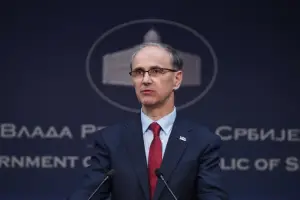 Belgrade, 17 July 2025
Belgrade, 17 July 2025Further strengthening of Serbia’s independent, sovereign policy
-
 Belgrade, 17 July 2025
Belgrade, 17 July 2025Serbia’s sovereign right to educate children according to its own values, standards
-
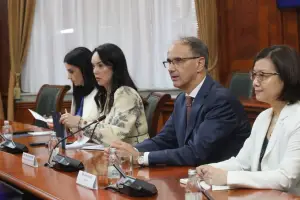 Belgrade, 15 July 2025
Belgrade, 15 July 2025Zijin: important partner in strengthening Serbia's industrial potential
-
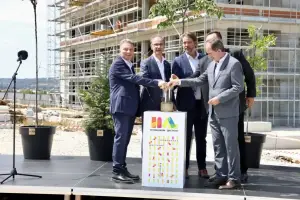 Kragujevac, 14 July 2025
Kragujevac, 14 July 2025Construction of second building of Innovation District in Kragujevac begins
-
 Belgrade, 14 July 2025
Belgrade, 14 July 2025Prime Minister receives farewell visit from Emanuele Giaufret
-
 Svrlijg, 12 July 2025
Svrlijg, 12 July 2025Care for people, their basic needs government’s absolute priority
-
 Belgrade, 11 July 2025
Belgrade, 11 July 2025Serbia committed to developing stable, partnership relations with Belarus
-
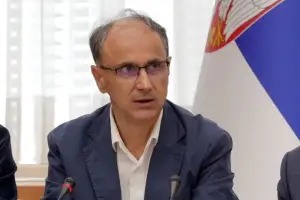 Belgrade, 11 July 2025
Belgrade, 11 July 2025Continuing responsible action in the protection of citizens and natural resources

